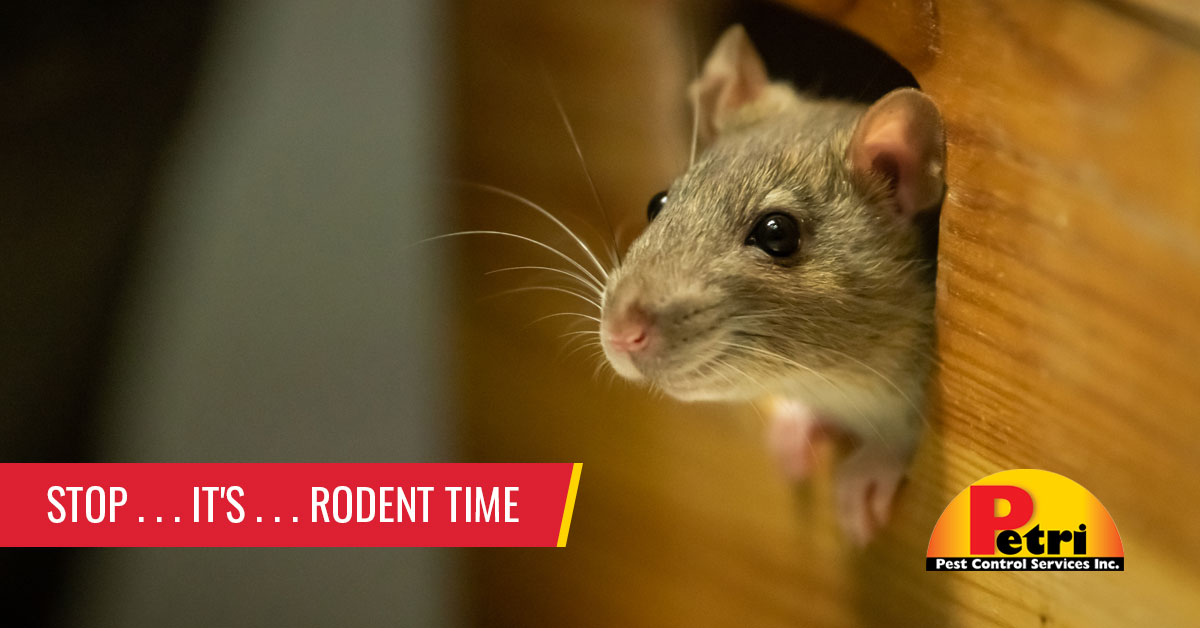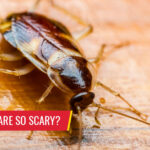
South Florida isn’t known for its winters but each year, around this time, rodents start to seek a warm place to sleep and eat. We’ve uncovered the different types of rodents found in South Florida, common entry points, dangers posed as well as what can be done to remove rodents and seal the home to prevent them in the future.
Roof rats, Norway rats, and house mice in South Florida
South Florida’s humid, mild climate makes an ideal place for all kinds of animals to thrive from ants and termites to rodents and more. With people spending more time at home due to the pandemic, there is more trash than usual being produced in the average home and therefore, an uptick in rodent activity was reported around the country even before the cooler season. Rodents eat what we eat and also contaminate ten times the amount of food they eat with urine, droppings, and hair.
Rodents in your home pose health threats and safety issues
Rats and mice pose several health threats to humans and pets. Vectors of at least ten diseases including bubonic plague, murine typhus, spirochetal jaundice, leptospirosis, rabies, rat bite fever, and bacterial food poisoning. Rodent excrement also attracts feasting insects, such as roaches that can cause hantavirus and allergic reactions. Rodents also cause structural damage by chewing through electrical wiring and starting fires or by burrowing under the foundation of homes.
How to identify rodents
The most common rodents in South Florida include Norway rats, roof rats, and house mice, with roof rats causing more problems for residents than mice or Norway rats. Roof rats can gnaw through lead, wood, copper, aluminum, cinder block, and uncured concrete.
- Norway Rats – These are big, heavy set and reddish-brownish with a blunt muzzle, their tails measure as long as their heads and bodies combined, at around 15”. Adult Norway rats weigh .75 to 1 pound. Sporting shaggy brown fur, Norway rats burrow under foundations in search of food.
- Roof Rats – Slender and smaller than Norway rats, roof rats vary in color from light gray to black, bodies measuring 6.5” to 8” long, add their long tails for a total length of 13” to 18”. With very large ears and an acute sense of smell, roof rats weigh around 6 -12 ounces.
- House mice – Brown to gray, weighing about .5 ounces, house mice measure 2”- 4” with tails as long as their bodies. Normally living outdoors, house mice sometimes venture 10’ – 30’ from their nests in search of food. When they do go indoors, they tend to live behind walls, as well as in cabinets and furniture.
Rodents can squeeze through minuscule entryways
Did you know that rats can squeeze through .5” wide openings and mice can enter through .25” wide openings? Any place a pencil can be poked into, mice can enter. Also, rats can:
- Climb the inside of vertical pipes 1.5” – 4” in diameter.
- Climb the outside of vertical pipes up to 3” in diameter and any size if within 3” of a wall.
- Jump 3’ vertically, 4’ horizontally, and reach 15” horizontally or vertically.
- Jump 8’ from a tree to a house if the branch is 15’ above the roof.
Signs of rodent activity
Rodents are nocturnal but will come out in the daytime to search for food when populations grow too large, food is scarce, or if they’ve been poisoned. Actual rodent sightings usually indicate that rats or mice have been living in your home for a while and an infestation may be underway. Other signs of rodent activity in your home include:
- Gnawed objects
Rodents must gnaw constantly to keep their teeth in check. Gnawed wood, building materials, and electrical wiring indicate rodent activity. - Droppings
Rodent droppings in your kitchen or other areas of your home indicate rodent activity. - Noises at night
Scurrying sounds in your attic or scratching sounds in your walls indicate rodent activity, along with squeaking sounds of young mice. - Tracks and runways
Rodents follow the same pathways to travel between food and water and their nests. Outdoors, hard-packed dirt paths can be seen running under shrubs and bushes. - Rub marks
Greasy marks on walls along pathways are caused by rodents rubbing up against walls or on rafters from rodents swinging from them. - Burrowing
Norway rats burrow to find food and shelter. Pathways leading to burrows are common indicators of rodent activity.
How to solve a rodent issue
Because of the damage to structures and the multiple health threats rodents pose, it is important to contact a trusted professional pest control company, such as Petri Pest Control Services to tackle your rodent issue. The technicians at Petri Pest Control Services will start by completing a thorough inspection of your property for signs of rodent activity, also looking for cracks and tiny openings that rodents can easily squeeze through. Our licensed technicians will then strategically place snap traps and baits in areas where rodent activity has been detected. Tamper-proof bait stations placed around the perimeter of your property deter rodents from entering your home as well. Sealing off access points by caulking holes in your foundation and around vents, pipes, and doorways keeps rodents from entering your home.
Homeowners can help
Developing rigorous cleaning and sanitation measures can make your home and property unattractive to rodents and other pests. Consider the following simple tasks to help reduce rodent activity in your home:
- Wiping down all food prep surfaces and dining areas immediately after snacks and meals.
- Cleaning all plates immediately after meals and discarding food in sanitized air-tight trash bins.
- Vacuuming or sweeping floors regularly.
- Storing all food items in the fridge or air-tight, hard plastic, glass, or metal containers in the pantry or on countertops.
- Feeding pets just enough for each meal, with no leftover pet food for rodents to enjoy.
- Repairing or replacing all leaky faucets and water prone areas in and around your home.
- Keeping grass cut short and branches trimmed away from the house.
- Decluttering your home and property.
In Broward and Palm Beach Counties, Petri Pest Control Services has been providing rodent control and prevention services since 1956. Local and family-owned, Petri can quickly address your rodent problem and wipe it out for good.
Contact our Pompano Beach location to schedule a free rodent inspection!
Stop . . . It’s . . . Rodent Time in South Florida
Serving Broward County and Palm Beach County


